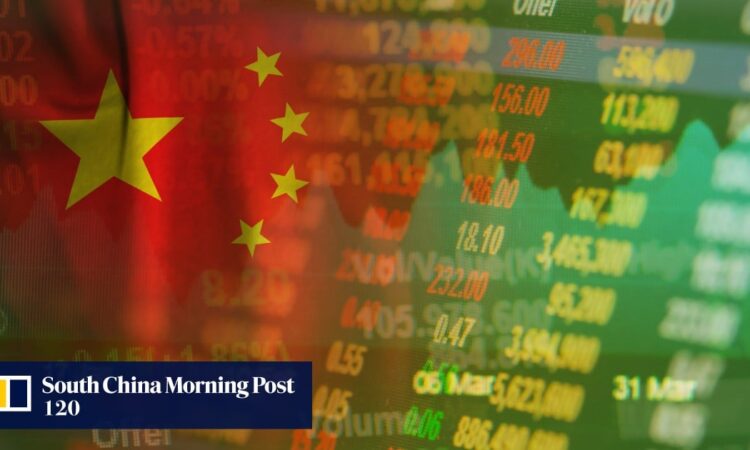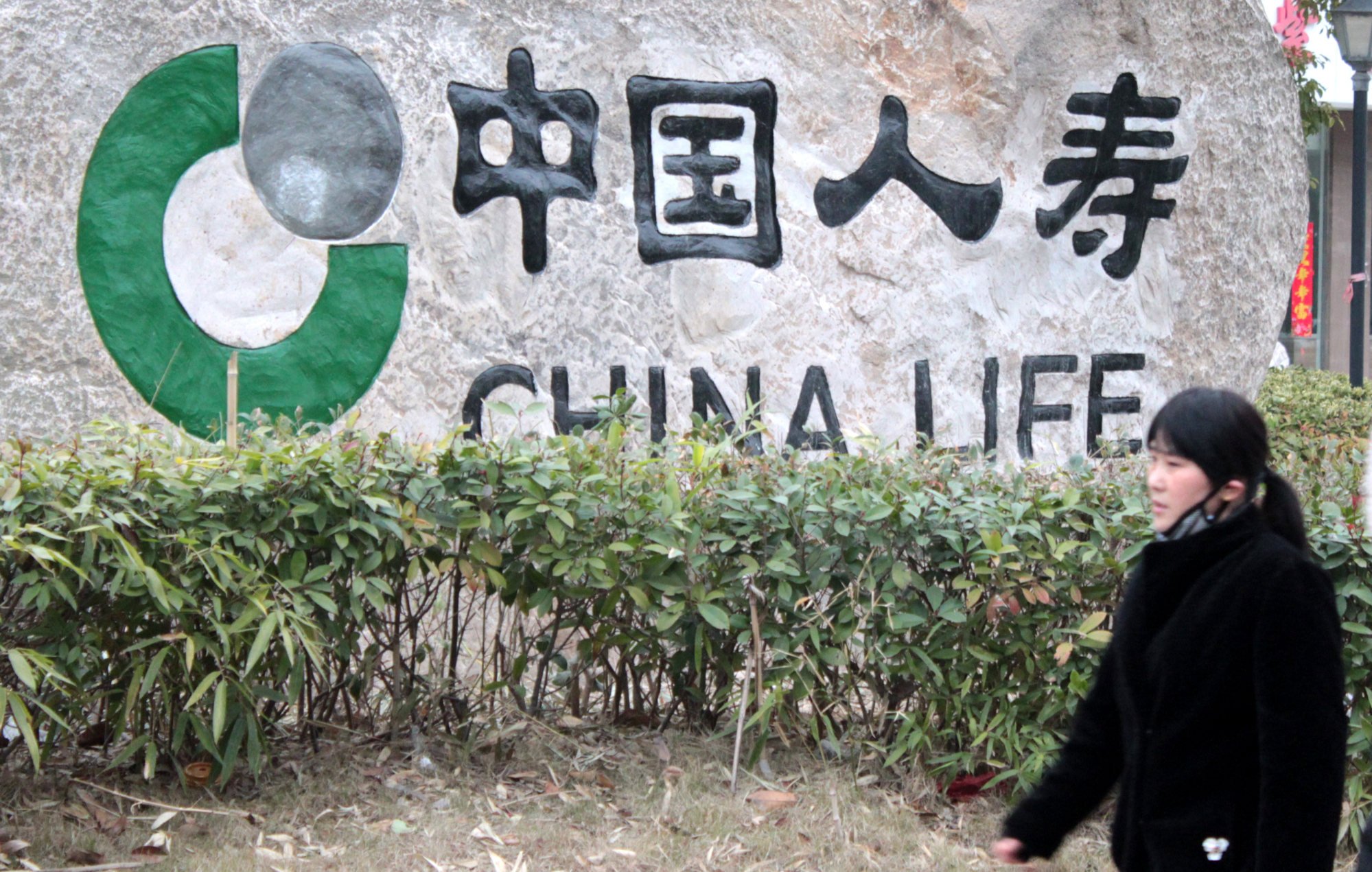China’s top insurers to launch US$7 billion fund to invest in onshore shares in sign of rising state support

Two state-backed Chinese insurance firms plan to launch a joint 50 billion yuan (US$7 billion) private fund to invest in yuan-denominated shares as policymakers ramp up support for the struggling stock market.
The plan is aimed at increasing longer-term investment assets that suit the company’s strategy, optimising the structure of assets and liabilities and improving the efficiency of capital use, New China Life said in the statement. It did not provide details about the investment scope of the fund.
China Life did not issue a statement on the proposed fund.

The fund will mainly invest in China’s onshore listed companies with good corporate governance and stable business operations, according to Huatai Securities. Local media outlet Cailian Press confirmed this, citing unidentified officials from New China Life.
“The private fund is expected to focus on the equity market in response to policymakers’ call,” said Liu Xinqi, an analyst at Guotai Junan Securities in Shanghai. “That comes against the backdrop of regulators urging financial institutions to be a bulwark of the industry and guide long-term insurance investments into the market.”
The move by the two state-backed insurance firms adds to evidence that support for China’s US$9.7 trillion stock market is well under way.
So far, a raft of market-boosting measures by policymakers, from the cut in the stamp duty to state buying of banking stocks and exchange-traded funds, have done little to restore investors’ confidence.
The benchmark CSI 300 Index has dropped 2 per cent in November, heading for a fourth straight monthly decline.
It has slumped about 10 per cent this year, the worst-performing equity benchmark globally after the Hang Seng Index. That has come amid a loss of momentum in the economic recovery following the country’s reopening after three years of Covid and a retreat by foreign investors amid higher interest rates in the US.
An official purchasing managers’ report released by the statistics bureau on Thursday showed manufacturing shrank for a second consecutive month in November.
Shares of New China Life rose 0.9 per cent to 31.34 yuan in Shanghai on Thursday and China Life’s shares gained 0.3 per cent to 30.07 yuan.
New China Life’s biggest shareholder is Central China Huijin Investment, a unit of China’s sovereign wealth fund that owns a 31 per cent stake, while China Life is controlled by the finance ministry.
The creation of the new fund will help to reduce fluctuations in the insurers’ profits triggered by market volatility, as the investments are booked long-term under accounting principles that are not immediately reflected in the income statements, according to Guotai Junan.
New China Life posted a loss of 440 million yuan in the third quarter and China Life’s net income slumped 99 per cent from a year earlier, with both blaming the weak performance on market volatility.






